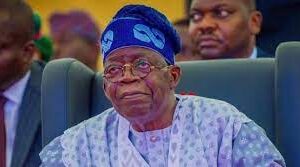For any nation to attain development, the media should be made to play its crucial role in the promotion of free flow of information, good governance, defence of human rights and rule of law. The just-concluded World Congress and the 63rd Annual General Assembly of the International Press Institute, held in Cape Town, South Africa offered a wide-range platform for seasoned journalists, researchers, academics and press freedom advocates to brainstorm on how the daunting challenges facing the media could be mitigated and better repositioned for sustainable societal transformation.
The congress with the theme “Celebrating Freedom: Two Decades of Evolving Media”, was unique in a number of ways. Firstly, it marked 20 years since IPI held its memorable gathering on the eve of South Africa’s first, multi-racial and free elections. Secondly, it signaled the 20th commemoration of the ‘end’ of Apartheid. Thirdly, it coincided with the 20th commemoration of the Rwandan genocide. Lastly, it coincided with the Silver Jubilee of the birth of the technological revolution, World Wide Web!
The programme formally kicked-off as Tim Du Plessis, the Executive Editor of Media24 Afrikaans News welcomed the nearly 300 participants while the keynote address was delivered by Collins Chabane, Minister, Office of the Presidency, Department of Performance Monitoring and Evaluation, South Africa, who was represented by ObedBapela, Deputy Minister. The Most Reverend Desmond Tutu, Archbishop Emeritus of Cape Town and Nobel Peace Awardee, sent in a goodwill message with his clarion call on world leaders to promote press freedom.
IPI’s Alison McKenzie presented the Executive Director’s Report tagged, ‘The State of Press Freedom’. While reeling out disturbing press freedom challenges across several countries and the concerted effort being made by IPI to curtail the slide, she noted that the South African Parliament, last November approved and sent to President Jacob Zuma, “the Protection of State Information Bill, also known as the ‘secrecy bill’, which in our view, gives too much authority to politicians to determine what is confidential information. It also lacks a public interest defence, which would directly impact whistle-blowers and journalists, who obtain information through their confidential sources.
“We strongly urge the President to veto the ‘secrecy bill’ and send it back to the Parliament for reconsideration – before the election. Doing so would send the message that South Africa is determined to protect freedom of the press and defend the right of the public to access information that affects their lives … it’s not too late for President Zuma to add his name and personal commitment to abolish these heinous laws”, she stated.
The well-organised congress was structured into 10 rich, deeply-researched and thought-provoking sessions beginning with ‘A Conversation with …’ that featured Dr. Fredrick de Klerk, former President of South Africa; OsyNwebo, Director of Bureau, Pan African Parliament, South Africa; and MoustafaSoung, Director-General, Al Jazeera Media Network. The session was moderated by Ferial Haffajee, Editor-in-Chief, City Press of South Africa, IPI Executive Board member and Chair, 2014 World Congress Host Committee. Dr. De Clerk, the last president of apartheid-era South Africa, who freed the late African National Congress leader, Nelson Mandela from prison and supported the transformation of South Africa into a multi-racial democracy, also shared the 1993 Nobel Peace Prize with Mandela.
In the discourse, he said if given the opportunity again, he would repeat taking the decision that led to the crumbling of apartheid, as he lauded those who fought the struggle with him. He declared that “I am no longer a politician”, while condemning the policies of the current government in South Africa over a number of issues like increasing violent crime, corruption, high unemployment, fallen standard of education, stunted economic growth, among others. He observed that the latest rebasing of the Gross Domestic Product of Nigeria, which placed it as the biggest economy in Africa was good but insisted that South African economy was better structured than Nigeria’s.
While Nwebo called for the decriminalization of defamation, he promised the support of the Pan Africa Parliament to promote press freedom in Africa, as MoustafaSoung called on the Egyptian government to release the detained Al Jazeera journalists, whom he said had not violated any law in the discharge of their lawful duties. My interaction with one of the freed Egyptian journalists, who attended the congress, Mohammed Bader alongside Abdelfattah Fayed, Cairo Bureau Chief of Al Jazeera shows that the incarcerated journalists were in bad conditions.
To be continued next week



